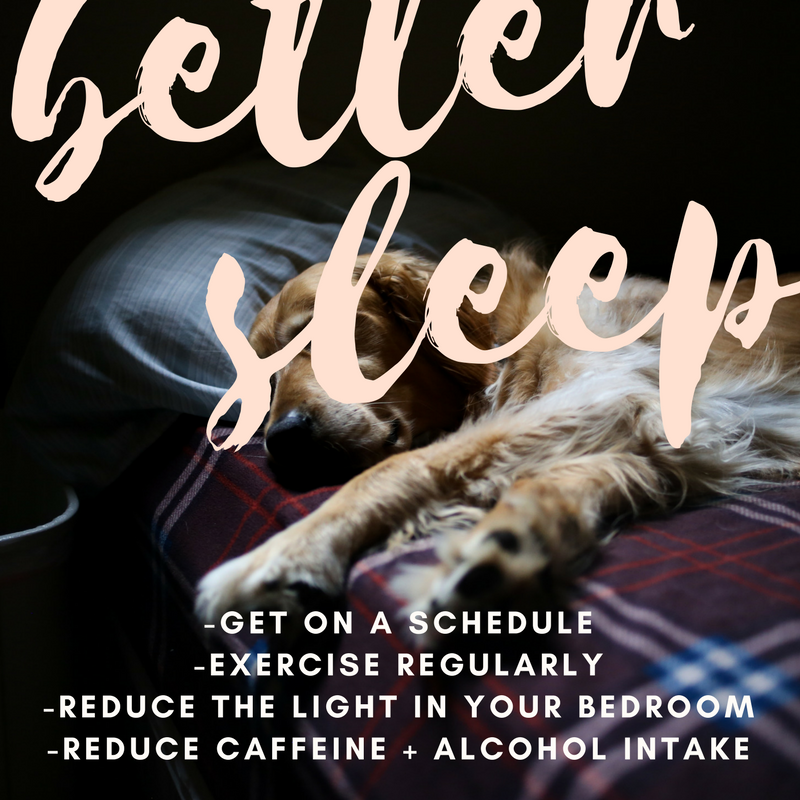
4 Tips for Better Sleep
It is commonly known that a good sleep schedule is integral to a healthier and happier lifestyle. A lack of sleep can be detrimental to our health in numerous ways. It can make moments of stress worse, cause cardiovascular issues, and impact memory. Many studies have found sleep to be underlying issue in disorders such as depression, and that just by changing and improving sleeping patterns, many other depression symptoms improved.
Accumulating studies have shown that sleep can benefit many different areas of life including better cardiovascular health, a healthier immune system, higher mood, as well as, better learning and memory. Many of our modern day habits could be detracting from our ability to get a good night’s sleep. Here are some changes that could be made to your schedule in order to get a more fulfilling night of sleep and to wake up ready for the day in the morning.
Regular Sleep Schedules
It is important to develop a regular time to go to sleep and get up in the morning, even on weekends when you are tempted to sleep in. This keeps your circadian rhythm (sleep cycle) regular and steady, leading to better and higher quality sleep in the long run. One way to maintain this schedule would be to set an alarm for the time you should be going to bed, not only when you should be awake.
Regular Exercise
Regular exercise has been shown to be linked to better and slightly longer sleep, as well as falling asleep more easily. Exercise has the potential to improve sleeping because it aids in alleviating depressive and anxiety symptoms. It is recommended that you get 150 minutes of moderate exercising a week. Regular exercising can even keep you from feeling drowsy during the day!
Reduction of Light
Studies have shown that electronics like TVs, iPads, computers, and phones emit a certain light, known as blue light, that disrupts sleep patterns and our ability to sleep. It is recommended that you turn off all devices an hour before you plan to sleep to keep this disruption at a minimum. During this hour it would be helpful to engage in a relaxing routine to help yourself get to sleep easier. Try taking a bath, reading paperback books (kindles exhibit blue light, so avoid if possible), or having some herbal tea with minimal caffeine and sugar.
Reduce Caffeine and Alcohol Intake
It is recommended that you stop drinking caffeine at least 4-6 hours before sleeping, as caffeine can remain in your system for several hours after consumption and disrupt your sleep. Many people also have alcohol, or a “nightcap”, before going to sleep. Although this might help an individual fall asleep, studies have found that doing so can cause many disruptions during sleep, reducing the quality of your rest.
Some sleep difficulties could be more serious, and if you are consistently experiencing problems then getting help is important. Cognitive-behavioral therapy (CBT) has been proven to be a very effective way to combat sleep disorders, like insomnia. If you find yourself regularly experiencing difficulties getting to sleep or staying asleep, or think that it may be exacerbating a mental condition, please feel free to contact the professional team at Lifeline Connections for help. Visit Lifelineconnections.org or call 360.397.8246 for more information.
